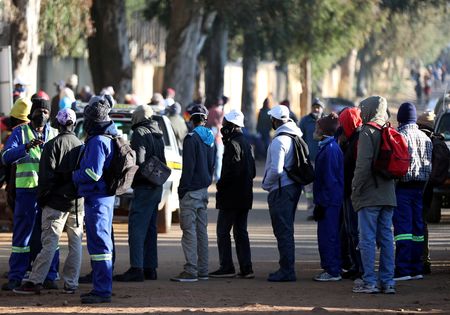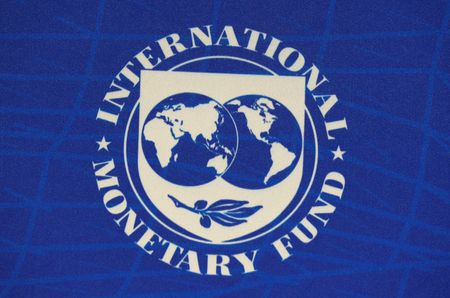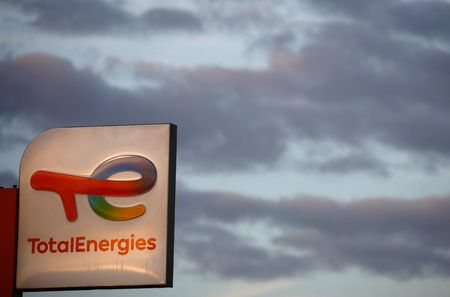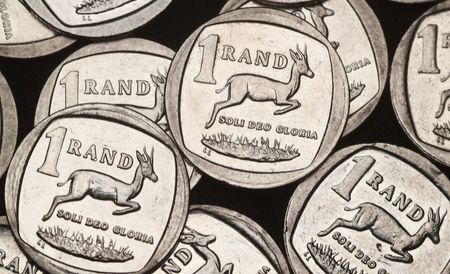By Kopano Gumbi
PRETORIA (Reuters) -South Africa’s unemployment rate rose in the first quarter of this year, with statisticians fretting that increasing numbers of people appear to have given up looking for work.
The country’s official unemployment rate – one of the highest in the world – rose to 32.9% from 31.9% in the final quarter of last year.
An expanded definition of unemployment, which includes those discouraged from looking for work, rose to 43.1% from 41.9%.
Desiree Manamela, chief director of labour statistics at Statistics South Africa, said there were signs that more people of working age were losing hope that work would materialise.
“That increase in discouraged work-seekers, it’s a … worry because we would want to see people being active in the labour market by either looking for employment or participating,” Manamela told a press conference.
Five of the 10 industries tracked by the statistics agency recorded employment increases while five saw decreases. The largest number of jobs lost were recorded in the trade and construction sectors, while the transport and finance sectors added the greatest number of hires.
Black women and young people remained especially vulnerable to joblessness in the first quarter, with unemployment rates of 39.8% and 46.1%, respectively.
Reducing unemployment is a priority for the coalition government that was formed last year after the African National Congress lost its parliamentary majority for the first time since apartheid ended in 1994.
Unemployment has been on the rise since 2016 and has been stuck above 30% for the past five years.
President Cyril Ramaphosa last week announced a new set of reforms aimed at boosting economic growth and job creation, extending a programme launched in 2020.
Operation Vulindlela, meaning “open the path” in the local isiZulu language, has achieved some successes such as curbing electricity blackouts, but it is yet to make a meaningful dent in the jobless rate.
(Reporting by Kopano Gumbi; Editing by Alexander Winning and Hugh Lawson)











